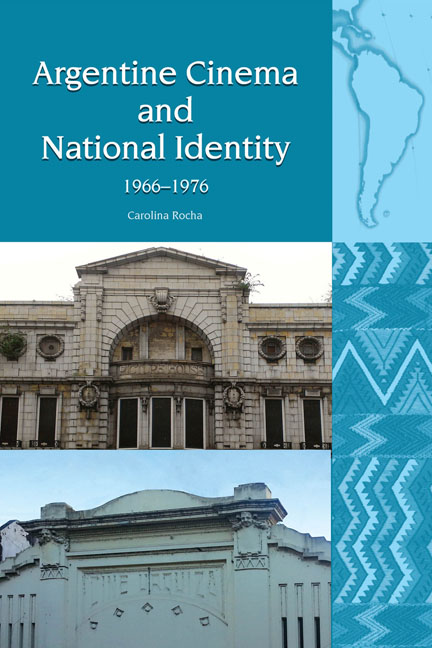Section III - Representing Founding Fathers
Summary
One of the ways in which Argentine filmmakers in the late 1960s and early 1970s created a sense of nationhood amid the deteriorating economic conditions and political unrest of those years was by depicting the heroic deeds of the nation's founding fathers. In this section, I examine two films by Leopoldo Torre Nilsson, El santo de la espada (1970) and Güemes, la tierra en armas (1971), that deal with the brave actions of José de San Martín (1778–1850) and Martín Miguel de Güemes (1785–1821), respectively, during the wars of independence in South America. I also analyze Bajo el signo de la patria (René Múgica, 1971) and Juan Manuel de Rosas (Manuel Antín, 1972) and explore the production and reception of these films as examples of what Higson calls ‘quality films,’ that is to say, films produced thanks to the support of state regulation and for middle-class audiences. These films also constitute cinematic products that resorted to product differentiation given that their topic—the representation of the Argentine founding fathers—did not compete directly with Hollywood films. In other words, El santo de la espada (henceforth El santo), Güemes, la tierra en armas (henceforth Güemes), Bajo el signo de la patria (henceforth Bajo el signo), and Juan Manuel de Rosas (henceforth Rosas) focus on Argentina's founding fathers in order to attract domestic viewers. More importantly, because of their exploration of Argentine history, these films engage with both past and contemporary forms of national identity.
My analysis will approach these films as historical and a blend of several subtypes: the biographical film, the war film, and the epic. Biographical films or ‘biopics’ represent the lives of great men. Dennis Bingham, who has studied the Hollywood biopic, asserts that the genre is linked to the studio era (2010a, 11) and that the 1970s was ‘the weakest [decade] for biopics’ (2010a, 24). This assertion is crucial to understanding that these four films constituted part of an original Argentine trend of making films that were unlike those produced in Hollywood. The biopic is also ‘a prestige genre, with films made in hopes of winning awards and earning respect’ (Bingham, 2010b, 77).
- Type
- Chapter
- Information
- Argentine Cinema and National Identity (1966–1976) , pp. 131 - 133Publisher: Liverpool University PressPrint publication year: 2018

